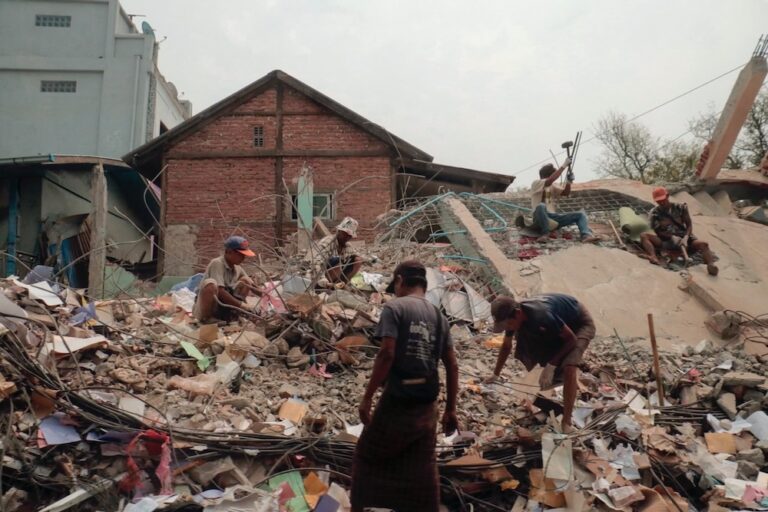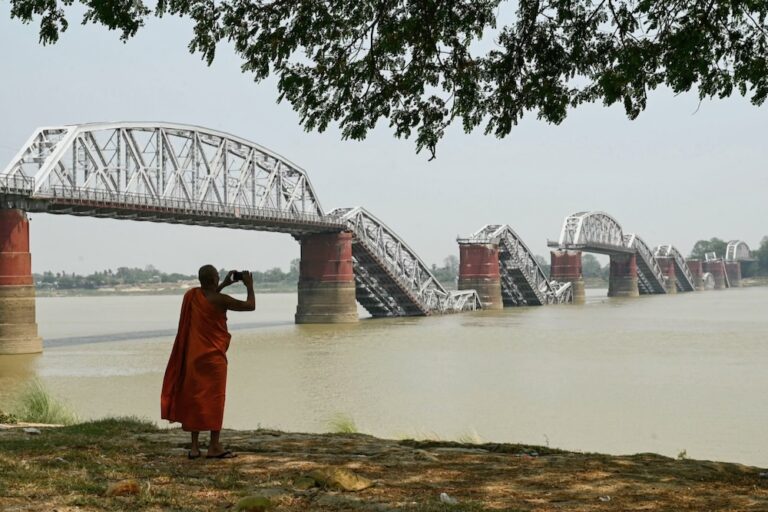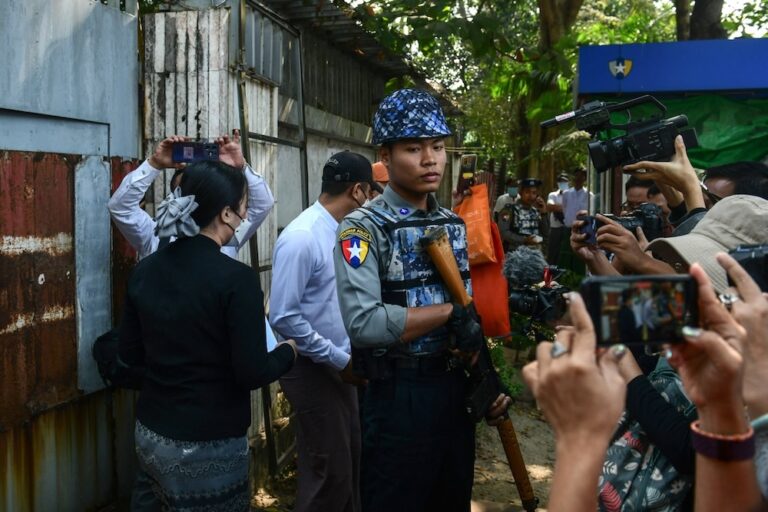Former Minister of Information U Aung Kyi resigned in late July 2014, along with Burma's then Health Minister. The shake-up followed a major cabinet reshuffle a month earlier and sparked speculation about differences between U Aung Kyi and President U Thein Sein over media policies.
This statement was originally published on mizzima.com on 17 December 2014.
Former Minister of Information U Aung Kyi was allowed to resign in late July 2014, along with then Health Minister, Dr Pe Thet Khin. The shake-up followed a major cabinet reshuffle a month earlier and sparked speculation about differences between U Aung Kyi and President U Thein Sein over media policies. Before heading the Ministry of Information, U Aung Kyi was Minister of Labour and he also served as the military government’s
official liaison with Daw Aung San Suu Kyi when she was under house arrest.
Why did you retire as Information Minister so suddenly?
The responsibilities of the president of a nation are weighty. The president has to choose ministers so that they can help him in carrying out his enormous tasks.
At the same time, ministers have the responsibilities of their own ministries. The president has to decide whether the position of the individual ministers will assist his needs or not.
I worked as a minister and a deputy minister for about eight-and-a-half years. I gave up everything in order to carry out my tasks. I did not claim any benefits except my salary and allowances given by the state.
I did not want to just earn a good reputation. I thought about how I could work for the sake of the general public. During the first two or three years of my tenure, I believed that my positions would satisfy what the president wanted.
But starting around January or February 2014, I was aware that my positions had become slightly unsuited to the government’s wishes on some issues. I thought about whether I should give up my role as minister or not. I had to choose between boosting my career or giving priority to my beliefs.
I value my beliefs. I had worked for many years to shape them. I could not give up my beliefs. When there was gap between my beliefs and [the government’s] needs, my superiors gave me some suggestions. I was grateful to them. I could understand what they said to me, but I held firm to my beliefs.
In March, I was aware of a growing gap. So I told my ministry that I was ready to go into retirement. I did not say I wanted to go into retirement immediately. I waited for the time when they would allow me to announce my retirement.
On July 29, I gave my health as a reason as to why I should retire. I don’t have any serious health concerns, but I requested that I be allowed to resign due to health reasons.
There are two government laws related to resignation from office as a minister and termination of office. According to Section 68(a), a minister can resign from office on their own volition. To resign that way, the minister needs to submit the desire to resign in writing to the president.
The other law is Section 69, which says the president can order a minister to resign.
I was able to resign according to section 68 (a), so I would like to express my gratitude to the president. The government had enough time to prepare to appoint my successor. I resigned when he [the successor] was ready.
After your retirement, many people from the media industry were detained and some private media outlets faced lawsuits. Was that a coincidence?
After revoking the Printing and Publishing Law and before enacting a new law, there was a period of weakness regarding media law.
The Printing and Publishing Law had not been revoked. But they planned to get rid of the old Printing and Publishing Law and it was absolutely clear that the law would be revoked. So if lawsuits were filed against media persons under that law, the lawsuits would be cancelled when the law was removed from the books. So this law could not be used anymore.
At the same time, the new law had not been enacted. So during the interim period, when issues arose, the government used other laws to punish offenders. That’s why some people were sentenced to prison, I believe.
Would that have happened if you were still the minister?
The old laws were used when I was holding the post. But now the new media law has been introduced and the printing and publishing law has appeared. Taking legal action using these two laws will be fairer, I think.
Some people say when discussing media freedom in Myanmar that the glass is “half full”. What is your opinion?
We cannot say that Myanmar has full media freedom. Our country has just recently tried to adopt new laws for printing, publishing and news media. We have also discussed new broadcasting laws. Our country is still in the period of preparing to enact those laws, so we cannot say that we have 100 percent media freedom.
We can say that we have gained considerable freedom in print media. We primarily think only about the relationship between media and the state. But we should also think about the relationship between media and business and the relationship between media and society, as well as media professionalism.
Despite weaknesses, the effectiveness of media is considerable. The people who take part in the media sector will have to take enough time to improve their skills.
In the next two to five years, government, businesses, larger society and media members will take part in this learning process.
Before the change of government you were involved in the negotiations with Daw Aung San Suu Kyi. What did you discuss at the meetings with her?
There are some restrictions on what questions I can answer. There is an agreement between Daw Aung San Suu Kyi and myself that we cannot disclose the details of our discussions without the consent of both of us. So, I can give only general information about our talks.
Our discussions at that time mainly focused on searching for “common ground.” We discussed what her side needed, what her side wanted and what our side wanted.
The then-government tried to solve the problems by using other ways, but its efforts were in vain. They eventually came to believe that opening a dialogue would be a better way. By opening dialogues, we thought we might find a way to solve the crises and problems. That’s why we held these meetings.
At that time, Daw Aung San Suu Kyi had to stay in her house, so she could not contact others.
We discussed arrangements that will allow her to meet with her party’s central executive committee members and steps to release some elderly prisoners. To some extent, our discussions were fruitful. Our first meeting was held on October 25, 2007. Our ninth meeting was held in January 2010.
In retrospect, if I could have successfully urged Daw Aung San Suu Kyi to stand in the 2010 elections, our democratic reforms might be stronger. That is the only thing that has left me a little frustrated with my efforts.
Do you see Daw Aung San Suu Kyi becoming the president?
If we really hold free and fair elections, the person who is supported by the citizens will become a president.
On the other hand, at my age, we think of everything in religious ways. So I would say that a person who is destined to become president will become president. It depends on the destiny of our nation.


